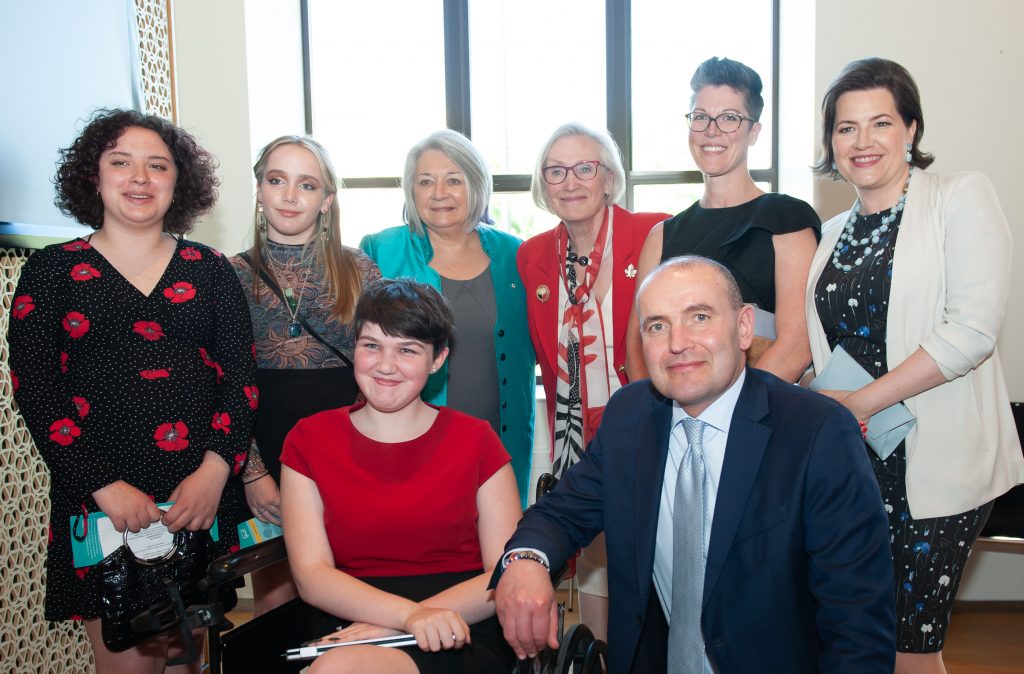For the third year, the Mach-Gaensslen Foundation of Canada is supporting the Dr. Francis Wayne Quan Memorial Prize for the best papers published in the Journal of Psychiatry and Neuroscience (JPN) over the year. The prize-winning papers for 2024 were announced April 23, 2025. This year, three papers were awarded gold, silver and bronze awards:
Gold
Heli Tuppurainen, Sara Määttä, Mervi Könönen, Petro Julkunen, Hannu Kautiainen, Soile Hyvärinen, Olli Vaurio, Mikko Joensuu, Matti Vanhanen, Kati Aho-Mustonen, Esa Mervaala and Jari Tiihonen
Navigated and individual α-peak-frequency–guided transcranial magnetic stimulation in male patients with treatment-refractory schizophrenia
J Psychiatry Neurosci March 01, 2024, 49 (2), E87-E95; https://doi.org/10.1503/jpn.230063
The editorial board chose this paper from Finland that advances knowledge in transcranial magnetic stimulation (TMS). This randomized trial studied a 3-week course of repetitive TMS, individualized based on the α-peak-frequency of different patients, as an adjunctive therapy in men with schizophrenia that had not responded to other treatment. The patients experienced symptom improvement, which was sustained for at least three months following treatment, showing the promise of individualized α-peak-frequency TMS in patients with treatment-resistant schizophrenia.
Silver
Sophie Simard, Reza Rahimian, Maria Antonietta Davoli, Stéphanie Théberge, Natalie Matosin, Gustavo Turecki, Corina Nagy and Naguib Mechawar
Spatial transcriptomic analysis of adult hippocampal neurogenesis in the human brain
J Psychiatry Neurosci October 16, 2024, 49 (5), E319-E333; https://doi.org/10.1503/jpn.240026
The editorial board chose this Canadian paper in fundamental science of the human brain. The study examines neurogenesis — the process by which new neurons are formed — in the hippocampus in healthy humans. This understanding will allow researchers to examine how neurogenesis might be altered by chronic stress, mental illness, or pharmacological treatment.
Bronze
Jinsong Tang, Qiuxia Wu, Chang Qi, An Xie, Jianbin Liu, Yunkai Sun, Tifei Yuan, Wei Chen, Tieqiao Liu, Wei Hao, Xu Shao and Yanhui Liao
Widespread reductions in cortical thickness following ketamine abuse
J Psychiatry Neurosci May 30, 2024, 49 (3), E182-E191; https://doi.org/10.1503/jpn.230111
The editorial board chose this paper from China that examines a possible risk of long-term use of ketamine for treatment of depression. Low-dose ketamine and esketamine have revolutionized short-term treatment for major depression and suicidality but can have dissociative adverse effects. This study examined whether cortical thickness was altered in the brains of ketamine users compared to controls and found widespread reductions throughout the brain.
About the Prize
Dr. Francis Wayne Quan Memorial Prize is co-sponsored by the Mach-Gaensslen Foundation of Canada and JPN. The prize was launched in January 2022 to honour the contributions of psychiatrist and former editor Dr. Francis Wayne Quan to the foundation and the journal.
Dr. Quan, who died 9 August 2021 after a brief battle with kidney cancer, was one of the founders and the first managing editor of the Psychiatric Journal of the University of Ottawa, the predecessor of JPN, from 1976 to 1983. He was also a director of the Mach-Gaensslen Foundation of Canada from 2016 to his death. These experiences were among Dr. Quan’s many contributions during his busy career as an eminent psychiatrist in Ottawa. The Mach-Gaensslen Foundation of Canada would like to congratulate this year’s prize winners. For more information about the winning papers, see the announcement in JPN.


